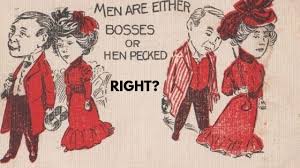They do it because it’s baked into their instincts from wild days when a tight, efficient flock meant survival.
One of the advantages is that it’s good for control.
Pecking is for social signaling – It keeps those subordinate in line, without fighting, small jabs, it’s a reminder of who is in charge. It also prevents big fights and chaos.
If there are not enough resources, the pecking order becomes more important. It means who gets the food.
The stronger ones pecking at the weaker ones, ensures that the stronger ones continue to get stronger, and the flock becomes stronger overall.
So that’s why there might be some force in society where, when you are winning, you are likely to win more. This boosts the flock’s overall genetic fitness—harsh but effective.
Chickens are dinosaurs. A weak/sick flock-member no longer smells or moves the same as the healthy members, and will be interpreted as something to cull from the rest of the flock. Sick or dying chickens attract predators so the other chickens will turn on them for the safety of the remaining flock, unfortunately. It’s an efficient form of self-preservation. No sense in keeping around a member who is ill, they might spread disease or consume food that could go to the healthier ones, I guess that’s their “logic”.
Invert – If you wanted to encourage more pecking, then you would:
-
Crowd Them: Reduce space to, say, 1 square foot per bird, heightening stress and competition.
-
Limit Resources: Cut back on food or water, forcing them to fight over what’s left.
-
Remove Distractions: Strip the coop of anything fun, leaving them bored and prone to picking fights.
- Not enough space / resources
- Environmental stress
- One chicken shows weakness
- Boredom – understimulation
- Nutrition
- Stop it early, before it grows
- Set clear boundaries
How to prevent henpecking or come out as more dominant when being henpecked?
– Become stronger
